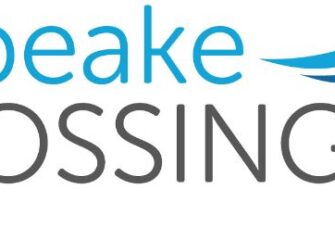
Home care professionals are often the first line of defense in preventing hospital readmissions because they see first-hand what a patient deals with in the home setting during the recovery period. Peninsula Home Care, is being recognized on a national stage for qualifying as “Agency of the Month” by the Home Health Quality Improvement (HHQI) Network. They are being recognized for their efforts in reducing hospital readmissions and medication management. “When a patient is discharged from the hospital, the necessary care for a full recovery doesn’t end,” said Nancy Bagwell, Branch Director for PHC in Maryland. “While continued medical care is necessary, many times it is not coordinated and shared with health care providers beyond the hospital. That’s when a return trip to the hospital occurs sooner than anticipated.”
Over the course of a year, Peninsula Home Care has tracked 2,356 patients in an effort to identify readmission risk factors. Of the over 2,000 individuals cared for and tracked, 1,641 are Medicare patients. For Medicare, readmissions contribute significantly to the cost of care as 18% of all Medicare patients discharged from the hospital are readmitted within 30 days of discharge, accounting for $15 billion in spending nationally. While not all readmissions are avoidable, many clearly are.
Peninsula Home Care took into account all risk levels from insufficient funds for medication and lack of transportation and missed follow up doctor appointments to fall risks and other chronic disease symptoms. Peninsula Home Care was recognized for initiating the following Best Practices in efforts to reduce hospital readmissions:
1) Screening patients upon admission for high risk of re-hospitalization and tailoring care to meet the individual needs of the patient
2) Establishing communication along the continuum of care for the patient (i.e. our team with primary care physician, surgeon, specialist, etc.) as needed and appropriate
3) Planning in the transition of care from hospital to home
4) Ensuring the patient, family, and caregivers are participating in the plan of care for recovery and using methods such as “teach back” to educate the patient, family and/or caregiver
5) Medication reconciliation completed within 48 hours of discharge / Medication Management
6) Notifying physicians a patient is identified as “high risk for readmission”
7) Assisting the patient with establishing and preparing for follow-up appointments
8) Using interdisciplinary teams to coordinate patient care
9) Implementation of telehealth to assist patients in learning signs and symptoms of exacerbation and maintenance of disease process to increase patient accountability
10) Making patients aware that PHC is available 24/7 and to reach out before going to the ER
11) Comprehensive discharge planning (i.e. facilitating discharges to rehab facility such as Genesis or nursing homes with detailed instructions and partnership or referral to PHC Community Health Worker
“We take pride in our commitment to providing quality care to all patients before they are discharged from the hospital to home. Our interdisciplinary team coordination approach helps everyone involved know the ins and outs of a patient’s plan of care. Teamwork fosters success and every detail counts.” By tracking patients, the PHC team was able to proactively intervene, communicate challenges to doctors and other healthcare providers and develop a plan for the coordination of care that would best fit the patients’ needs at home.
About Peninsula Home Care
Celebrating 30 years, Peninsula Home Care ensures that all patients are involved in their plan of care and strives to give them every opportunity to maintain their independence in the home. The agency has served more than 42,000 patients on Delmarva and has been named to the “Home Health Care Elite” three times in six years. For more information, visit www.peninsulahomecare.com.




